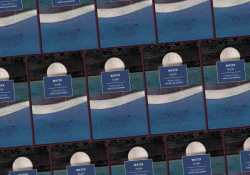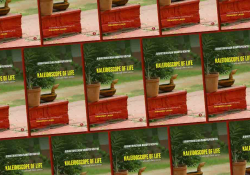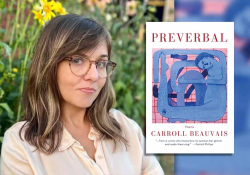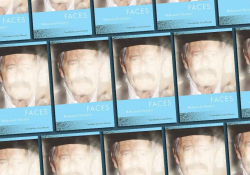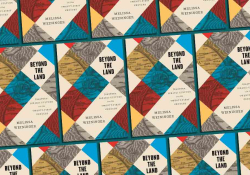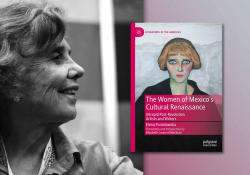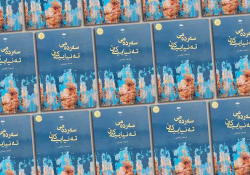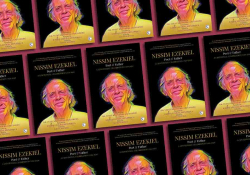The World (Is a Book) According to Peter LaSalle

 Whether he is recounting his nighttime drive with a late colleague and poet around the beltway of the pulsing and vibrant São Paulo—a city so full of people and culture that it seems to have its own gravitational pull—in the form of a mournful elegy, characterized by piercing prose and sorrowful nostalgia about their time teaching together; or essaying about his days abroad in Cameroon as a young, twinkly eyed bachelor, chancing upon the opportunity to interview the renowned René Philombe, “one of the most influential personalities in the new wave of creative writing in Cameroon” (Cameroon Tribune); or, after spending a week with his sweet, innocent prospective playwright of a nephew (“See more glass, cries little Sybil”), lamenting his inability to marry or set down roots in a Parisian penthouse high above the skyline; or creating his own fiction while drawing from his myriad of experiences around the planet or recounting his travel to the places in which his favorite pieces of literature were set or composed—a few of these being the ancient Carthage (modern-day Tunis) of Flaubert’s 1862 historical novel Salammbô; Buenos Aires, the proverbial cradle of the Argentine literary giant Jorge Luis Borges; or Ho Chi Minh City, home of Bao Ninh’s The Sorrow of War, arguably the most transformative author of postwar Vietnam—Peter LaSalle, in The World Is a Book, Indeed (LSU Press, 2020), manages not only to edify a travel-starved young adult such as myself about world literature and its prevalence in the landscape of global sociopolitical issues but also to remind his audience of the inherent joy and meaning ensconced in a life of travel and the literature that results from it.
Whether he is recounting his nighttime drive with a late colleague and poet around the beltway of the pulsing and vibrant São Paulo—a city so full of people and culture that it seems to have its own gravitational pull—in the form of a mournful elegy, characterized by piercing prose and sorrowful nostalgia about their time teaching together; or essaying about his days abroad in Cameroon as a young, twinkly eyed bachelor, chancing upon the opportunity to interview the renowned René Philombe, “one of the most influential personalities in the new wave of creative writing in Cameroon” (Cameroon Tribune); or, after spending a week with his sweet, innocent prospective playwright of a nephew (“See more glass, cries little Sybil”), lamenting his inability to marry or set down roots in a Parisian penthouse high above the skyline; or creating his own fiction while drawing from his myriad of experiences around the planet or recounting his travel to the places in which his favorite pieces of literature were set or composed—a few of these being the ancient Carthage (modern-day Tunis) of Flaubert’s 1862 historical novel Salammbô; Buenos Aires, the proverbial cradle of the Argentine literary giant Jorge Luis Borges; or Ho Chi Minh City, home of Bao Ninh’s The Sorrow of War, arguably the most transformative author of postwar Vietnam—Peter LaSalle, in The World Is a Book, Indeed (LSU Press, 2020), manages not only to edify a travel-starved young adult such as myself about world literature and its prevalence in the landscape of global sociopolitical issues but also to remind his audience of the inherent joy and meaning ensconced in a life of travel and the literature that results from it.
A reader might dismiss LaSalle’s meandering and extensive ruminations on his adolescent and early adulthood experiences—as a Rhode Island Catholic schoolboy, Harvard undergraduate, and self-proclaimed bachelor—as bordering on self-absorbed and dispassionate. However, once past the incipient paragraphs of each essay, readers will appreciate the grace with which LaSalle tells his travel anecdotes. Along the way, LaSalle offers percipient observations about the sociopolitical climates of his host countries—for example, the scars of Apartheid in South Africa, the lingering sorrow and torture left by the Western colonizers in postwar Vietnam, and the prevalence and toxicity of the stark economic divides between various Parisian ethnic neighborhoods—and manages to portray each country’s strife as a microcosm for the universal experience of suffering.
LaSalle offers percipient observations about the sociopolitical climates of his host countries and manages to portray each country’s strife as a microcosm for the universal experience of suffering.
LaSalle, a globe-trotting MacGyver, craftily weaves together the stories and characters of all those he has met—writers, translators, poets, fathers—into a rewarding retelling of his journey, all the while cementing the importance of the creation and consumption of classic and modern literature on an international scale.
LaSalle’s dazzling descriptions of the physical landscapes of the various countries he travels to are enough to return his reader, as French surrealist poet Louis Aragon would put it, to “a creation of pure wonder, in a setting where I first became aware of the presence of a coherence for which I could not account but which sent its roots into my heart.” LaSalle manages to cultivate such a sense of awestruck wonder. His skill is particularly evident in this simple yet splendid excerpt, a description of his time in Vietnam: “And every time I do repeat it I again seem to be right there on a morning of thick honey sunshine in wonderful Hanoi, the motorbikes beep-beeping away below the open window as I sit at the long desk.”
Ultimately, LaSalle crescendos from tributes to multiple regional authors within single essays—for example, in Africa, the works of Updike, Coetzee, Naipaul, and Gordimer are all analyzed via a series of reviews within the essay “To Read a Continent”—to the penultimate essay dedicated to none other than the father of modern metafiction himself, and harbinger of the Latin American literary revolution, Jorge Luis Borges. Particularly fond of Borges due to a combination of an innate proclivity for metafiction and a shared fraternity derived from years of teaching literature at the University of Texas at Austin, LaSalle all but christens the Argentine author as the most perceptive and creatively talented man to ever live. And rightly so: as an author who voyages into the cavernous depths of the human conscience and into the meaning of literature and authorship itself, Borges eclipses every work of fiction his home nation, and the globe, has hitherto seen. The Argentine giant conceived of contraptions that not even Vonnegut, in an opium dream, could have fathomed (the most famous of these being an infinite library that uncannily symbolizes the infinite monkey theorem, or Pierre Menard, who attempts to rewrite Don Quixote line for line without once plagiarizing Cervantes).
Having only heard his name mentioned by my father, I was convinced enough by LaSalle’s accolades to listen to a collection of Borges’s lectures at Harvard University in 1967, upon which I was deeply enamored with the author’s outlook on literature and the human experience. I promptly sought out the nearest copy of Borges’s work—any one of them would do. To my great appreciation, a glossy edition of Ficciones, a tour de force in the truest sense of the phrase, was sitting on our family bookshelf. Simultaneously taken aback by the sheer density of Borges’s prose (indeed, each sentence in a Borgesian story seems to be labyrinthine, begging to be dissected and further analyzed; my reaction was similar to that of a child who attempts to eat an entire plate of frosting at once: I stopped after one story, fearing that my brain would instantaneously explode) and pulled in by it, I guzzled these impossibly metamorphic stories. Similar to how one cannot stare into the sun without damaging their eyes, one cannot directly consume an entire collection of Borges short stories in one day (as I so foolishly attempted to do). So, it would be fair to compare LaSalle’s reviews and commentary to shields of reflective aluminum that allow the observer—or reader—to view the genius of Borges without blinding oneself beyond repair. Thus, I have LaSalle’s brilliant insight to thank for what will likely be a lifelong infatuation—and friendship—with Borges.
It would be fair to compare LaSalle’s reviews and commentary to shields of reflective aluminum that allow the observer—or reader—to view the genius of Borges without blinding oneself beyond repair.
A seasoned translator and prolific author of short stories, LaSalle has created nothing short of a gem in The World Is a Book, Indeed. As Borges says, quite humbly, literature is not the work of any one person, but a manifestation of the collective experience of the human spirit. Truly, in The World Is a Book, Indeed, with his poignant reviews of indispensable books in the global landscape, LaSalle has ripened and emboldened his audience’s sense of world literature. In these essays, LaSalle has constructed a haven where a reader can look beyond their nation’s literary horizon and participate in the aggregation of human consciousness.
Carleton College

